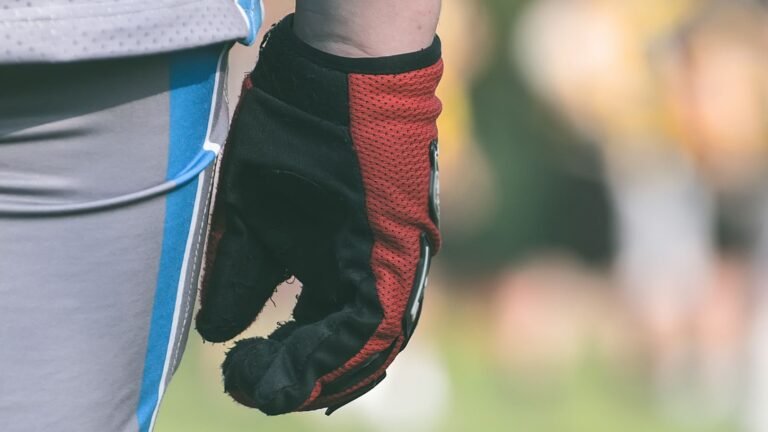Children’s general development depends on finding a healthy balance between athletics and education. A child’s future depends considerably on academics and sports since they support them in many spheres, including social, psychological, and physical ones. Managing these two demanding activities can be hard, though. There are useful tips and strategies in this article that can help parents guide their children balance their school and sports commitments.
Managing time
Setting up a Plan
You need a well-organized schedule to balance sports with school. Parents and children should create a schedule together each day or each week including time for school, homework, exercise, activities, meals, and rest. Digital tools, calendars, and planners can help you remember when and what you need to accomplish.
Setting Task Priorities
Managing your time effectively depends much on your ability to create priorities. Youngsters should learn how to prioritize their efforts depending on due dates and the value of the task. For example, making sure that homework is done before sports practice keeps students from ignoring their schoolwork. Large homework can be easier to handle and less stressful if they are broken up into smaller tasks.
By Using Free Time
Kids can get the most out of their free time by doing something useful with it. They can stay ahead in school by reading or going over notes on the way to games or training. They can also use the short breaks between activities to quickly go over things again or catch up on lessons that they missed.
Help with schoolwork
Talking to the teachers
It’s important to be able to talk to teachers freely. Children should inform their teachers about their sporting schedules, particularly in cases when a game or competition may lead them to skip class. Should a teacher be aware of a student’s other obligations, they could be prepared to provide additional assistance or homework ahead of time.
How to Do Homework
Good strategies for completing your homework can help you to save time and stress. Children should be allowed to study in a calm, cozy, non-busy environment. By doing homework at set times and sticking to them, you can make a pattern that turns into a habit. Also, talking about the toughest topics first can help you approach them with a fresh mind.
Study Groups
Starting or joining a study club can help. Working in study groups, students can exchange notes, discuss subjects, and support one another in grasping difficult concepts. Children who have to miss class because they have to play sports may find this extremely beneficial.
Health of the body and mind
Enough rest is quite crucial for maintaining performance in sports and school. Children should obtain at least eight to ten hours of sleep every night to ensure they are ready for the next one. Parents should ensure their children sleep enough and avoid late night TV viewing or study sessions.
What to Eat
Maintaining body and mind calls for well-balanced meals. Youngsters should eat among other things proteins, carbs, fats, vitamins, and minerals. Frequent meals and a balanced diet will supply the energy needed for school and sports.
Dealing with Stress
It’s difficult to juggle sports and academics, hence teaching children stress management techniques is crucial. Among things that could help them relax and focus are deep breathing, yoga, or meditation. Encouragement of them to relax in their leisure time and engage in enjoyable activities can help to lower stress as well.
A Support System
Help from parents
Parents are very important when it comes to helping their kids handle school and sports. In addition to making schedules and keeping an eye on school duties, they can offer emotional support. Kids feel like their work is more valued and recognized when their parents accompany them to sports games and school events.
Help from coaches
Coaches should know how their players are doing in school. A helpful teacher will tell kids to put schoolwork first and be flexible when they need to be. When parents, coaches, and teachers talk to each other openly, it can help everyone handle their tasks in a balanced way.
Friends and Peers
Support and inspiration can come from friends and teammates. You can help kids stay focused and committed by telling them to spend time with positive people. Having help from other students can also make juggling school and sports more fun and less lonely.
Long Term Plan
Set goals
Kids can stay inspired by making plans for both short and long-term goals. Whether they are academic achievements, sports milestones, or personal growth, goals give people a sense of direction and purpose. Kids can stay on track by reviewing and changing their goals often.
Getting ready for college
Kids who balance school and sports games are better prepared for college sports. A lot of schools want students who are good at a lot of different things. Keeping up good grades and showing off your sports accomplishments can help you get into college and get a scholarship.
A career away from sports
While some people might not be able to make a living from sports beyond high school, the knowledge gained is invaluable. Any employment will benefit from your ability to effectively manage your time, be disciplined, interact with others properly, and not give up. It is very important to not lose focus on school while practicing sports.
In conclusion
While it’s challenging, keeping up with athletics and academics is also enjoyable. If children learn how to manage their time well, obtain aid they need with their studies, take care of their physical and mental health, and be surrounded with individuals who can encourage them, they will be successful in both school and sports. Parents, coaches, and teachers all contribute significantly to helping and directing children through this process. Kids will live a full and well-rounded life if you help them stay inspired and focused on their goals.





